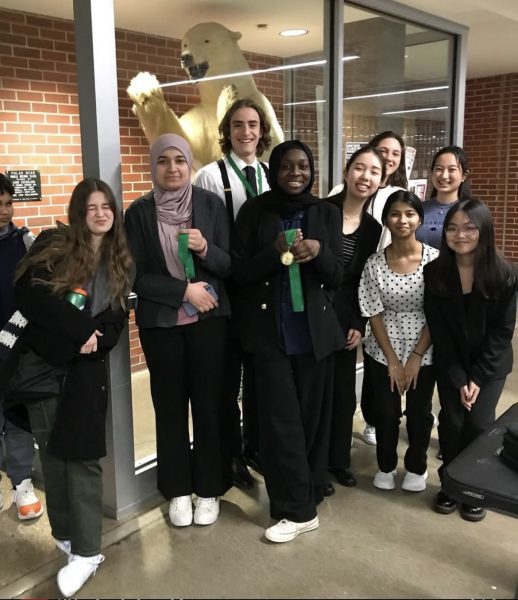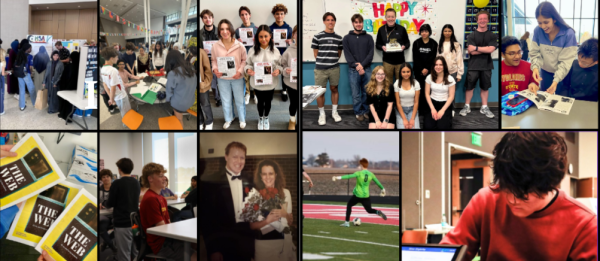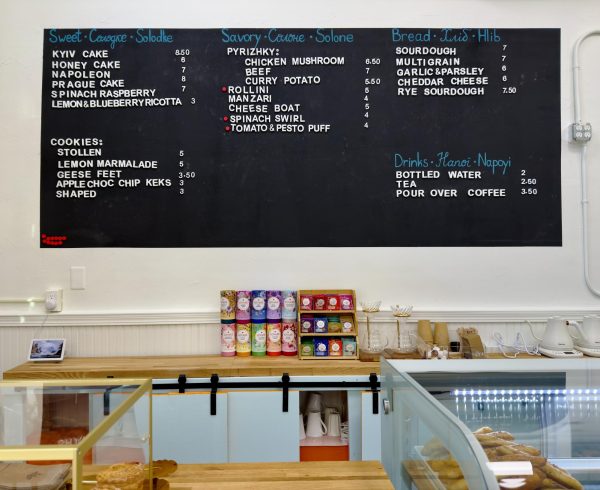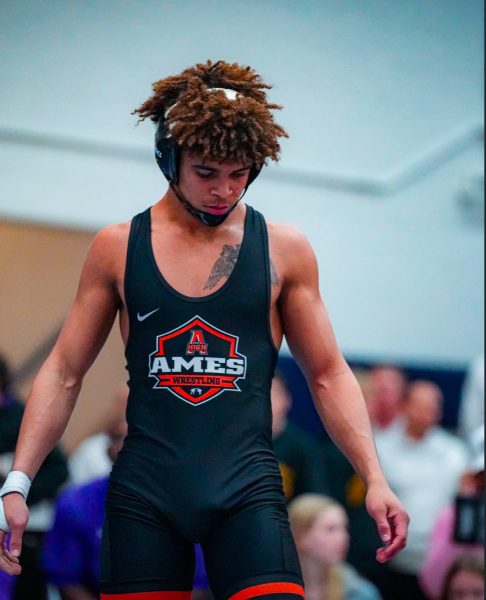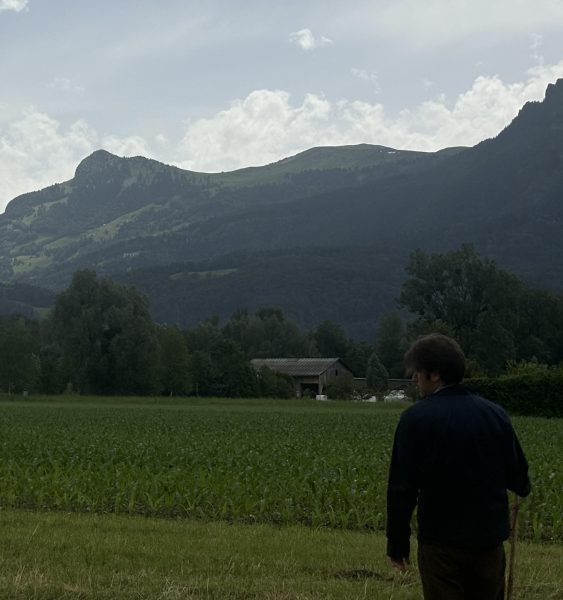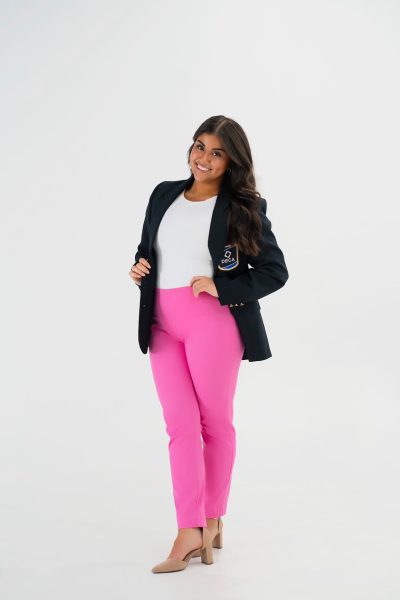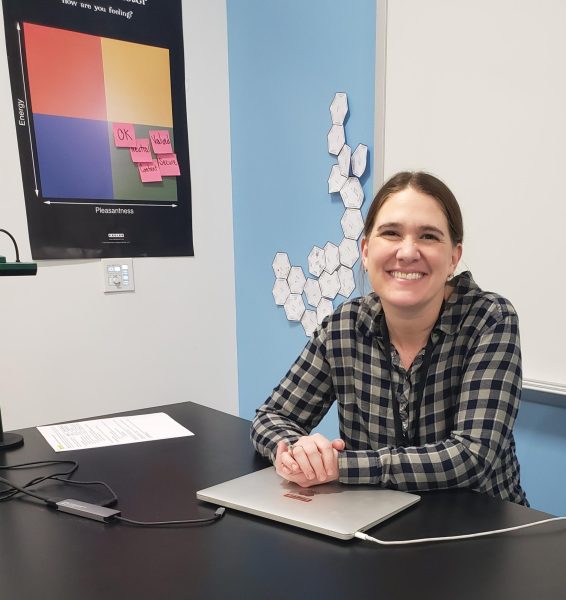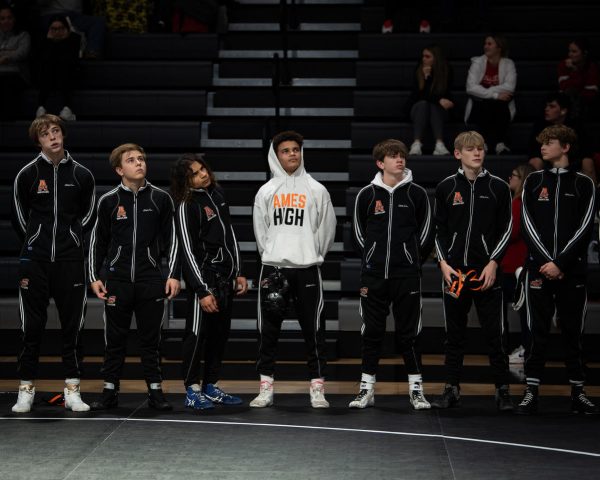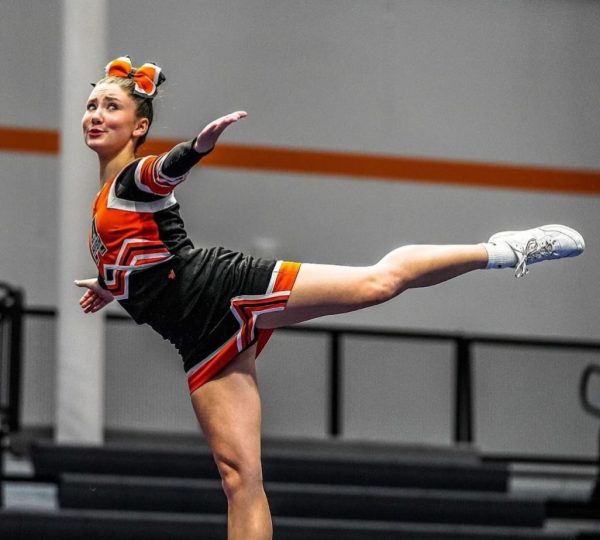Q&A: A Bachelor’s in Saving the World
As a climate science major at Iowa State University, Daniel Musel wakes up ready to save the world from destruction – and grab pizza with his friends after.
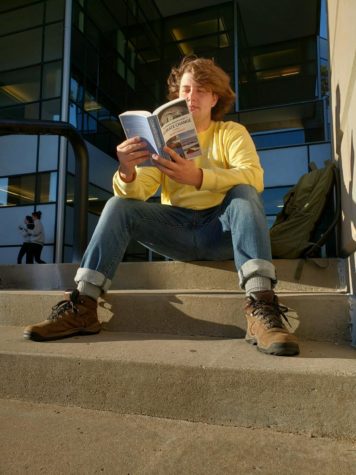
Daniel Musel sits on the steps of the ISU Parks Library reading the second edition of a Thinking Person’s Guide to Climate Change by Robert Henson, an optional textbook provided by the climate science program. Before discovering the program his Senior year, Musel had planned to major in meteorology with a minor in statistics.
At 18, Daniel Musel is the only person at Iowa State University to major solely in saving the world, currently pursuing a Bachelor’s degree in climate science. The small college launched the program this year and is one of the only universities in the nation to offer climate science at its core. The program goes beyond Earth, atmospheric, and social science to deliver a comprehensive study of climate policy, data analysis, and science communication. Drawn by the promise of bridging gaps in climate research and public knowledge, Musel is seeking to delve deeper into science communication and its benefits.
His decision is part of an ongoing effort on behalf of Generation Z to take control of a climate crisis spinning consistently more out of control. The nuance of the program as well as Musel’s unique participation landed him an interview with NPR and an appearance on Morning Edition in early August of this year.
The following interview has been condensed and edited for clarity.
What drew you to climate science?
It’s probably the biggest problem facing our generation right now and not enough people are trying to solve it. No one is trying to tackle it head on in a way that I feel is productive, so I’m hoping that along with others I can be that change.
How do you see yourself using this degree in the future?
I really don’t understand the perspectives some people take on climate change, and that’s something I hope to understand with this major. What’s happening that’s making these people think this way and rationalize it this way? Recently, I’ve been looking into positions with the Environmental Protection Agency, and in working with them I would be lecturing and working to advise politicians on certain policy changes.
How do you look at your major and climate change differently because you are the next generation? Because you are the solution?
Growing up global warming was this big enigmatic idea. You know there’s so many conflicting stories, I grew up hearing about it and then learning about it in school and now of course in college, but what’s changing right now is that it’s real and a big problem. The sentiment I hear a lot among my peers surprisingly is that you know “we’re going to be dead by the time it affects us” – the same sentiment we’re hearing from older generations. I think the magnitude of the issue is what’s daunting for humanity as a whole, especially as we now start to slowly see its effects.
Is juggling saving the world and being a college student ever difficult?
It’s a little bit stressful. I think I read recently that kids who are doing similar degrees have some very high levels of stress and anxiety that stems from the position we’re being put in. There’s this existential dread of a huge problem that’s facing the whole planet as well as the general stress of going to school. All of this is added onto how this is our problem, we’ve got to solve it.
You were interviewed by both IPR and NPR in August, what was that like? What does it mean to you that national interest has been taken in ISU’s climate science program?
I was excited and I thought it was really cool. I was like wow, this is bigger than me. I think it is absolutely amazing that these huge places are taking interest in this and that other colleges are now doing this and implementing similar programs into their curriculum.
What hope do we have left?
I’m very optimistic about this. The 1.5 degrees celsius the IPCC wants, it’s going to be very hard to achieve but I think we can do it. This kind of alarmism that is happening among a lot of people is kind of dumb? The idea that we’re all going to drown and that we’re all going to die is just scaring people needlessly. We have a lot of the solutions already and we know what to do, it’s just a matter of implementing them. If anyone is thinking about a climate science major, do it! It’s the future and it’s awesome.
Your donation will support the student journalists of Ames High School, and Iowa needs student journalists. Your contribution will allow us to cover our annual website hosting costs.























